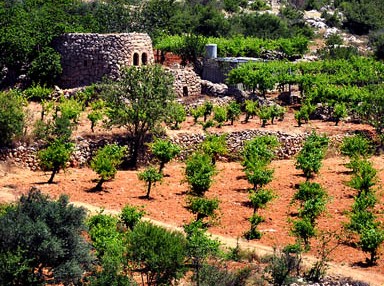
In the Mass readings today (Gen 37:3f ; Mt 21:33-43,45-46) we find the theme of the rejection of the good and innocent man doing his father’s work. First in Genesis it is the rejection of Joseph by his brothers who are jealous of the favour shown to their father’s youngest son. They almost kill him in the wilds but instead sell him into slavery and fake his death by a wild animal. In the Gospel parable of wicked tenants of the vineyard the tenants in the vineyard refuse to pay the owner of the vineyard his dues in the form of a proportion of the harvest. They thrash and kill the owner’s servants, and then when the owner sends his son (whom he thinks they will respect) they murder him.
On the face of it we might well ask, why is it that good people can be so rejected even to the point of murder? What was it that drove Joseph’s brothers to consider selling him to slavery or even consider murdering him? What was it that led the religious opponents of Jesus to consider finding a way to have him killed? Jesus had only done good in His life, but He had also challenged and pointed out the Jewish leaders’ errors. But was that enough for them to consider having him executed? It is naturally difficult for us to see how this can happen, and I think the early Christians must have also struggled with this question. The parable of the wicked tenants of the vineyard in part answers that question, showing the long history of the rejection of the prophets by Jerusalem leaders, and then finally the rejection of the Father’s only Son.
What causes the heart of man to consider the murder of a good man the best option? The short answer is, of course, sin. It was jealousy. It was anger. It was looking for the easy way out. It was fearing earthly powers more than God. It was pride and not wanting to lose one’s own status.
The sad fact is that when light shines, those that wish their deeds to remain hidden despise the light. The light that shines from a good and righteous man can cause those who are attached to their sin to react against that good and righteous man, sometimes in ways that are surprising and shocking to us. But this is the way of the witnesses of Christ, which we are all called to walk. We are called to live Christ’s way even when it is counter everything that the world stands for. We are living in a time when increasingly we who answer the call of Christ to bear witness to him will face rejection and conflict. Let us ask for the prayers of the Martyrs that we may have the courage to be faithful to Christ and less concerned about the world’s reaction.
Fr Ian



